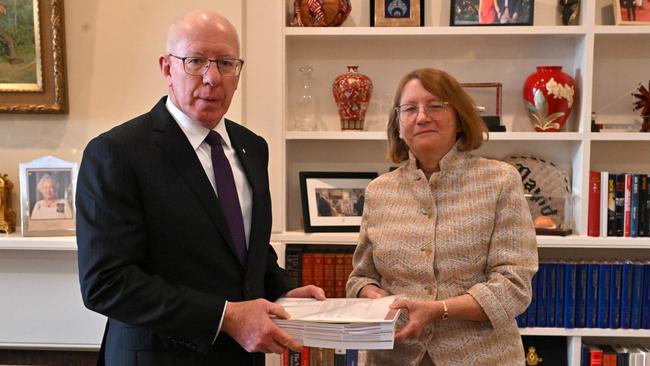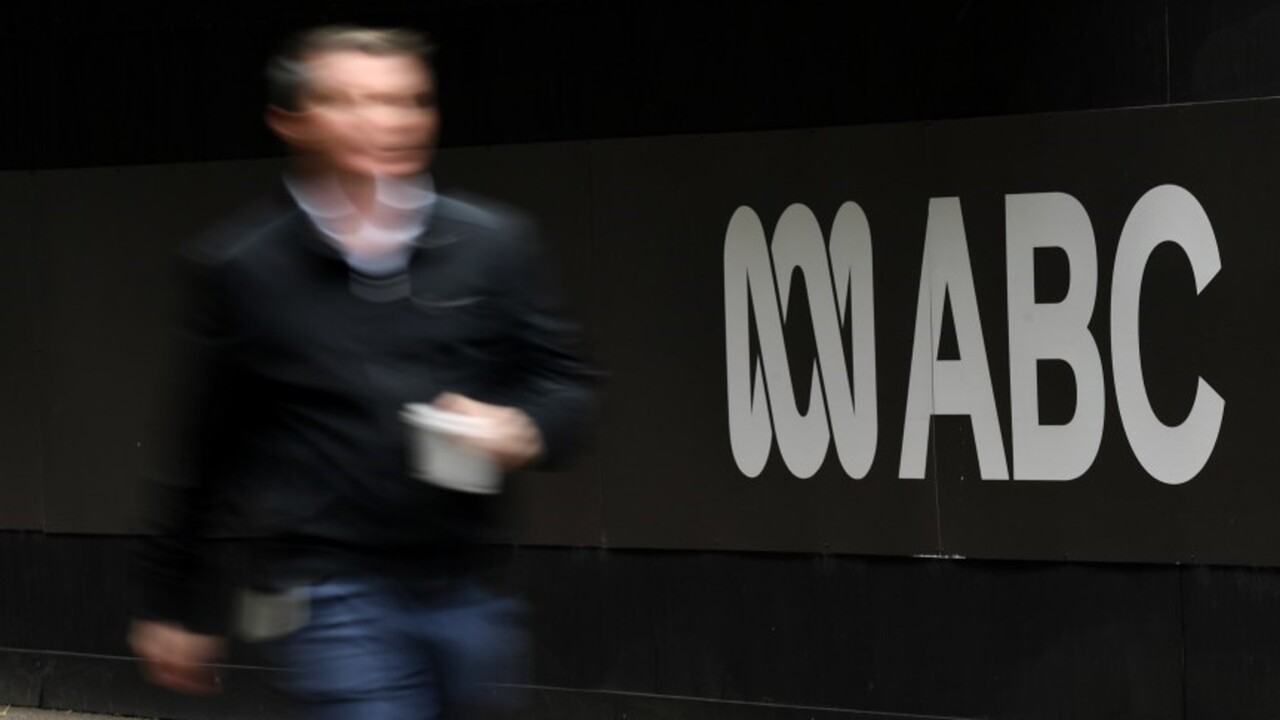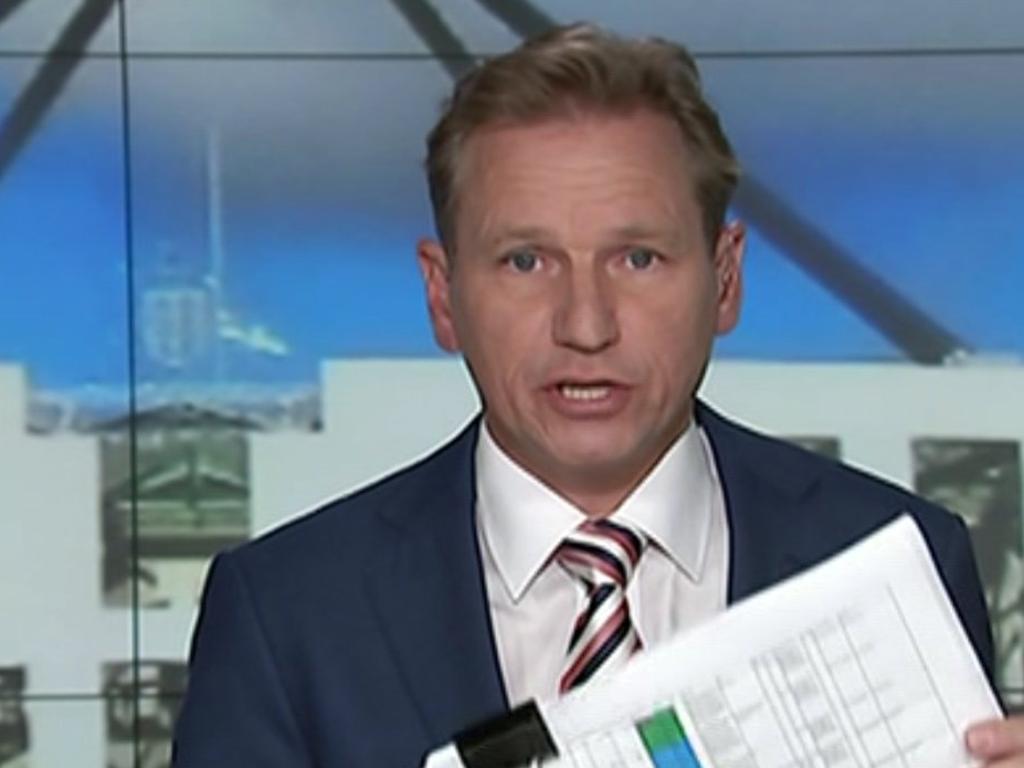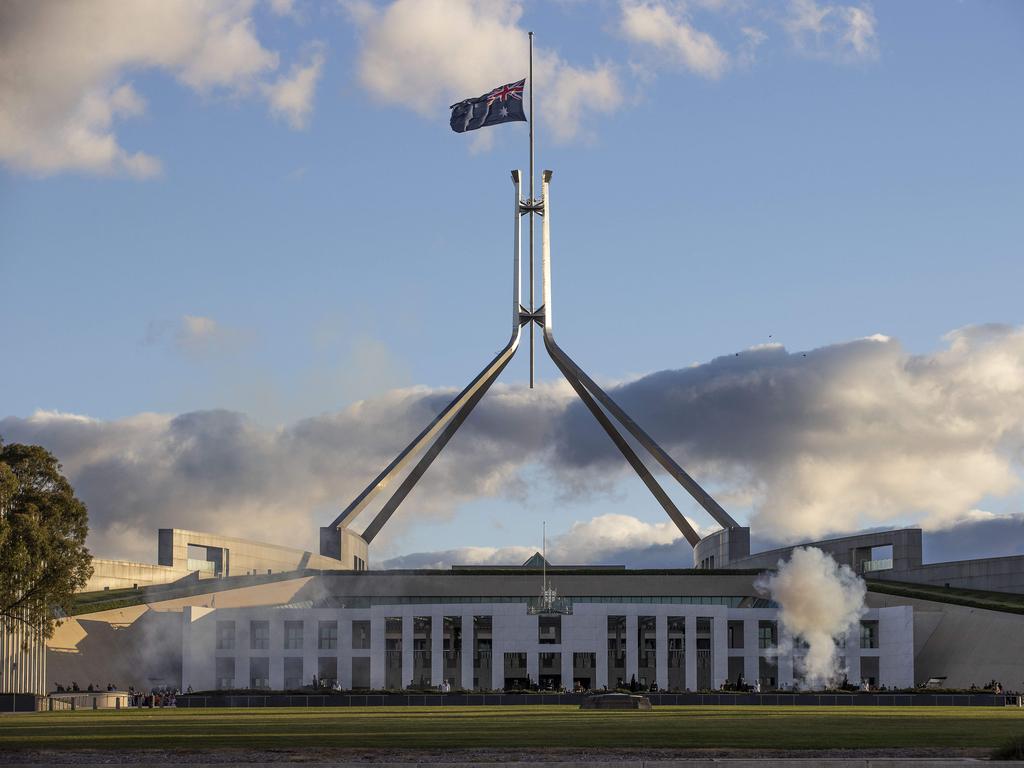On the voice, Robodebt, politics in Australia follows a worrying American trend
On issues such as Robodebt and the voice, our politics is following a worrying US trend.

You might cheekily suggest free membership to those airline luxury lounges, higher politician’s wages or generous travel allowances. But on policy or political issues of substance, where is the common ground?
Well, I reckon they would all be critical of the way politics is played in the US. They would agree that the aggressively hyper-partisan politicking in America is less edifying and effective compared with our own system. And they would want our politics to remain fairer, wiser, perhaps even kinder and gentler.
Yet politicians on the right and the left are taking us down the same path. In keeping with their ever-abundant hypocrisy, politicians who deplore the way the Great Republic’s politics have been deformed are leading the Americanisation of our system.
Just look at the way the incoming Labor government set up the Robodebt royal commission to pursue the former Coalition government, now using its findings to try to hound former prime minister Scott Morrison out of parliament.
This is the weaponisation of quasi-judicial processes for partisan purposes – a very ugly aspect of US politics – and it could play a major role in Saturday’s Fadden by-election triggered by the resignation of one-time Robodebt minister Stuart Robert.
Enthusiastically leading this charge – in an antipodean echo of the way the US Democrats are seeking to destroy former president Donald Trump and undermine his 2024 bid for the White House – is former Labor leader and current minister Bill Shorten.
But he, too, has been subjected to similar tactics because the royal commission into the union movement in the first year of Tony Abbott’s Coalition government was a similar exercise – more partisan vendetta than interrogation for the public good – that pursued Shorten and Julia Gillard along with their union allies.
This is a worrisome trend. The first order of business for incoming governments should not be the prosecution of the previous incumbents; it should be to strike out anew.
Robodebt was clearly a poorly devised and heartless policy instrument but the opening words of the report by royal commissioner Catherine Holmes gave away the inquiry’s alarmingly bipolar view.

Holmes outlined a cartoonish dichotomy when it came to perspectives on welfare, declaring that people recognised welfare as a crucial support to be provided “willingly, adequately and with respect” to those who needed it or as a “drag on the national economy” where recipients were a “burden on the taxpayer” demanding the “clawing back” of benefits by “generally making the condition of the social security recipient unpleasant and undesirable”. With no middle ground even countenanced in that opening overview, how much store could we place in the rest of the report? Such black-and-white choices are redolent of hardline US politics, too.
Union behaviour and Robodebt were areas warranting some form of examination to discover malpractice, learn lessons and deliver reforms, but royal commissions probably were unnecessary. (As an aside, it is instructive that the royal commission we really need, one into our national pandemic response, has not been called. Neither side of politics is clamouring for it. Hardly surprising given governments and oppositions, state and federal, Liberal and Labor, would be exposed for their overreach and deceptions.)

Instead, we see that in this country quasi-judicial inquiries directed at political opponents have become commonplace. Just like the “Russiagate” investigations in the US that ended up seeing Democrat conspiracy theories chasing their own tails, just like the impeachment proceedings too, and now the risible criminal charges against Trump.
Media, too, plays a role. You only need look at the ABC’s trial-by-media pursuit of Liberal politicians such as Christian Porter and Alan Tudge, the weaponisation of the Brittany Higgins rape allegations and the as-yet-uncorrected “story of the century” programs in which Four Corners’ Sarah Ferguson bought into and amplified the Democrats’ Russian collusion delusion to see the leftist media activism aping American trends.
As a kid I remember Love, American Style, which was a bit of a hit on Aussie television for a while. Now we do hate American style.
The media polarisation cuts both ways, with the splintering of mainstream and social media increasingly leading to silos of green-left media in the public broadcasters, Nine Entertainment newspapers and Guardian Australia, on the one hand, and right-of-centre views being concentrated and largely limited to News Corp media and Nine Entertainment’s radio stations. Again, this split follows the American lead.

Leftist activist groups dramatically have changed the political landscape here, mimicking US groups. GetUp has led the way with its well-funded and aggressive advocacy.
The right has fought back with groups such as Advance Australia and its offshoot Fair Australia behaving much like US political action committees. Since 2019 we have even had an Australian branch of the Conservative Political Action Conference established here, promoting a more robust form of conservatism than had previously been seen in this country. This new machinery of the right has never been as prominent as it is now, mobilised to run the No case against the Indigenous voice. Advance Australia created Fair Australia for this purpose, and they are employing tough tactics familiar in the US but new to our shores.
These groups have been running video ads highlighting clips of relatively obscure Indigenous activists to generate fear about the voice being a radical, even communist, outfit pushing for reparations and the like. Completely ignored in this scare campaign, running strongly on social media, are the pertinent facts that the voice can only ever be advisory and will always remain under the control of the parliament.

The No campaigners relentlessly use the R-word – race – even though the voice is not about race, the proposed amendment does not mention race and most Australians are not concerned with issues of race. Yet the No campaign run by the Advance Australia, Fair Australia and their CPAC allies, including their friends among Coalition conservatives, is replete with talk about “race-based” provisions and “dividing the nation by race”.
It sounds very American. And not in a good way.
And while these attacks from the right are misleading, ugly and brutal, the left also dances down the US road of identity politics, with the “taking a knee” sanctimony and moral bullying finding an antipodean expression. In this way the Americanisation of the left fuels the strident response of the right, and vice versa as the debate becomes more shouty; the question of which begat the other remains moot.
The outcome is a political divide that is ever more scratchy, with diminishing common ground and aggressive sniping taking the place of what was once a robust public square. Deceptive scare campaigns are increasingly common and complex debates are reduced to savage, winner-take-all culture wars.
Writing in the Harvard Business Review a decade ago, David A. Moss, the author of Democracy: A Case Study, said it was the desperation to win at all costs that was the real problem in US politics. “This absolutist approach to politics feels disturbingly familiar in America today,” Moss wrote. “The fervour to win too often appears to trump everything else – including respect for opponents, the integrity of institutions, and even the health of the democracy itself. The idea of allowing each side to win part of its agenda is increasingly seen as tantamount to surrender in many quarters.”
This sounds all too familiar in Australia today. I am not optimistic about us turning the tide.








Do you think you can come up with something on which just about every political operative in this country would agree? A point of unanimity between Greens, Nationals, Labor, Liberals, teal and independents?